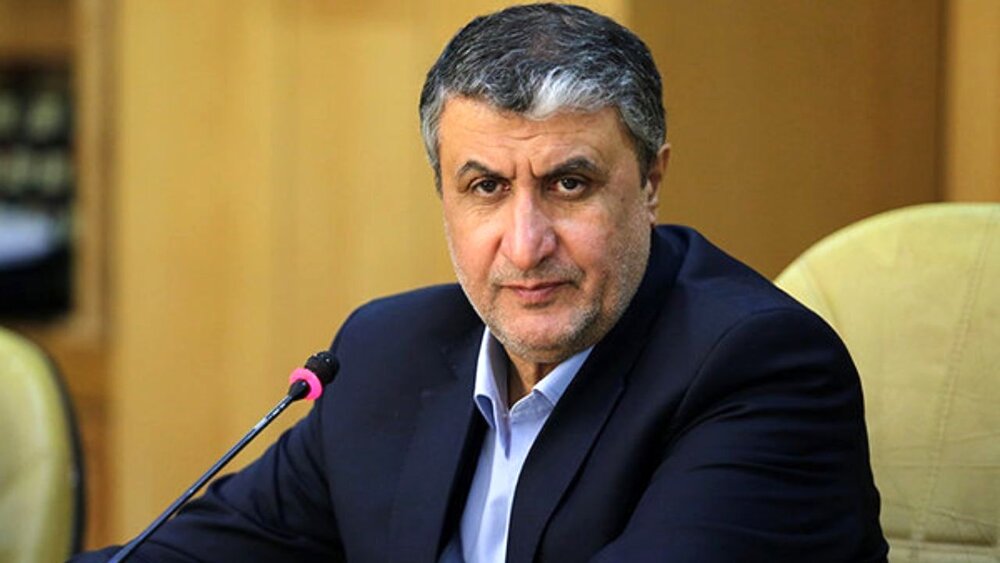Self-sufficient Iran plans to power nuclear plants

TEHRAN— Mohammad Eslami, the director of Atomic Energy Organization of Iran (AEOI), has told Sputnik that his country can create nuclear fuel on its own and will soon begin using it at the Bushehr nuclear power plant.
He also told Ria Novosti that the second and third power units are around 23 months behind schedule when the correspondent asked when will the reconstruction process begin. Eslami said that Iran anticipates that Rosatom would boost the implementation of the project to compensate for all the delays.
“We owe Moscow money for these two blocks (second and third power units in the Bushehr nuclear power plant), and the amount has already been calculated. Given the financial terms we agreed on and the loan we took out to do so, we have almost balanced them.
We anticipate that Rosatom will speed project implementation with an agreed-upon plan to compensate for all delays. Block 2 is currently being concreted, and the process of guaranteeing the structure's strength is in progress. Concerning the third block, I can report that the soil is being strengthened and that preparations for concreting the foundation are currently ongoing,” he noted.
In response to a question posed by Ria Novosti about the IAEA inspectors being thoroughly frisked before entering a nuclear facility and whether it is possible that among them are spies and saboteurs who have been duped by countries wishing to attack Iran’s nuclear program, the nuclear chief said that the protocol dictates that the inspectors should not bring anything with themselves when entering a vital institution.
“You should not bring anything with you when entering a vital public institution. We did not breach any of our inspectors' protocols. In this aspect, the reverse is true - they must abide by them. They must abide with our guidelines. It will be the same everywhere you go in the world. We treat them according to the same principles and will never accept inspectors who are employees of foreign intelligence services masquerading as Agency inspectors,” he noted.
The Russian journalist then asked Eslami about the enrichment program and whether it would exceed the level of 60% if the parties to the Vienna talks fail to reach a deal, and Eslami replied that Iran’s uranium enrichment is aimed to fulfill the industrial needs, and Iran will not go beyond the 60% enrichment.
The nuclear chief reiterated, “No, not at all. All of our uranium enrichment aims are to fulfill our industrial and production needs, as well as the needs of our consumers for the things that our country and people require today. All of our atomic activities are carried out in accordance with the International Atomic Energy Agency's agreements, statutes, and regulations.”
He then added that Iran is planning to produce 17 thousand megawatts of nuclear energy.
“During the construction of new power plants, we are aiming for 10 thousand megawatts of energy. Today, we need at least 17 thousand megawatts. Iran's energy policy is structured so that renewable energy sources are utilized to the fullest extent possible, so that Russia can also join this development partnership. Besides inviting foreign investors to participate in the construction of this attractive 10,000 MW project in Iran, as Russia has invested in other countries,” he noted.
The AEOI chief added that Iran can already produce nuclear fuel.
“We held talks with Rosatom and we hope that within the framework of our interaction, as well as on the basis of the plans and contracts that we will conclude with it, we will be able to start using Iranian fuel in the reactor itself in Bushehr,” he reiterated.
The interview came just a few days before Iran and the P4+1 (Russia, China, France, UK, and Germany) plan to resume the talks in Vienna intended to lift sanctions imposed on Iran.
Iran has time and again dismissed reports that it seeks to enrich uranium to %90, saying it is “a bold lie.” Foreign Minister Hossein Amir Abdollahian vehemently dismissed such a claim in his phone call with EU foreign policy chief Josep Borrell earlier in December. IAEA chief has also rejected such a rumor.
The P4+1 and the United States are creating a media hype that Iran is enriching uranium to weapons-grade level to influence the talks to gain more concessions, but this media hype is doomed to fail, as Iran has no plans to enrich uranium beyond 60%. The AEOI chief made this very clear that even if the Vienna talks fail, Iran will stick to 60 percent enrichment to provide radiopharmaceuticals for cancer patients, agricultural uses, industries and more importantly to run nuclear power plants.
